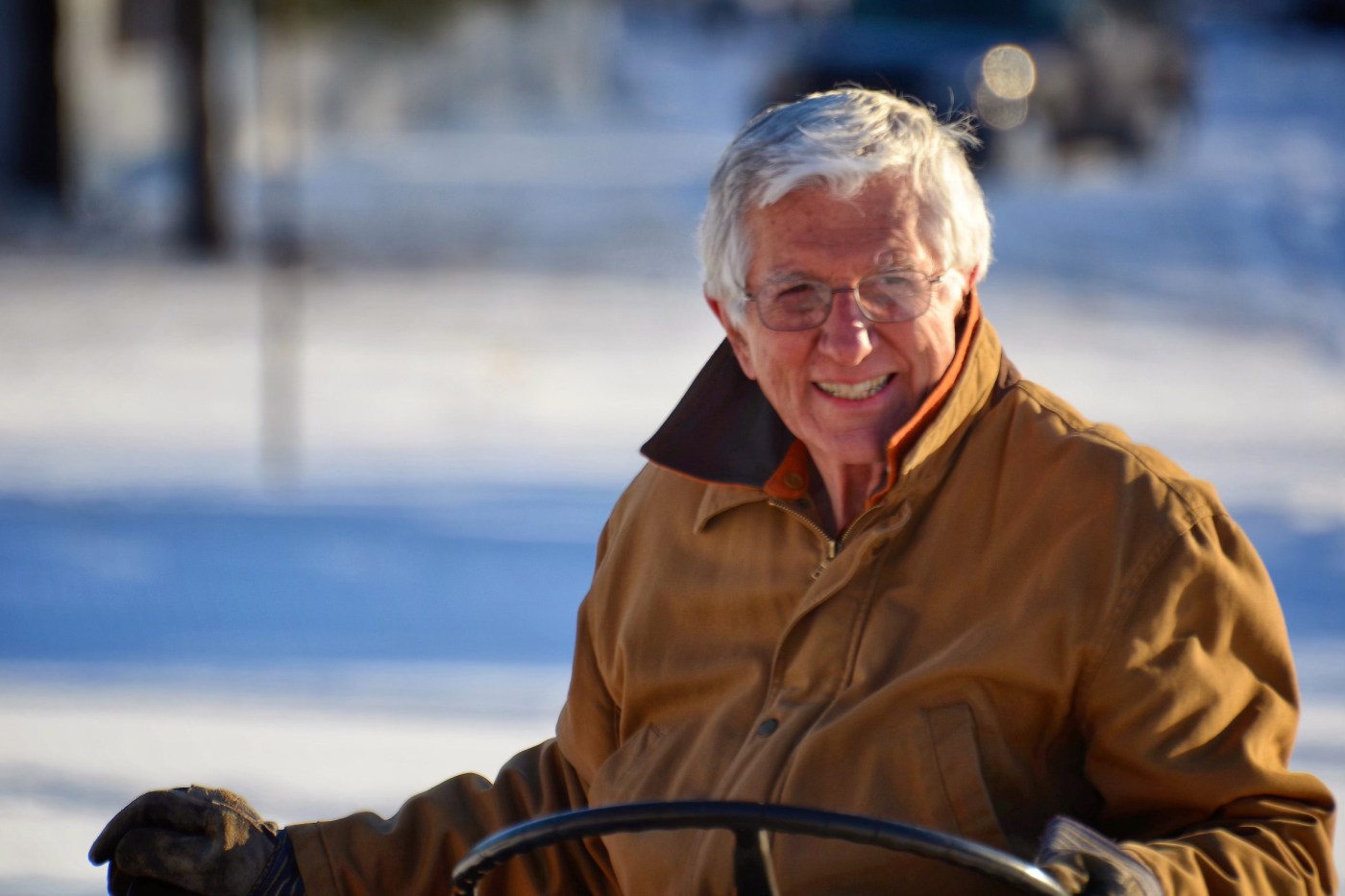
Burt Riskedahl: A plea before dying — on behalf of those who might need it
On Sept. 22, 2023, my father, Burt Riskedahl of Oakdale, was diagnosed with stage 4 cancer and learned that he would likely live only a few more months.
Throughout his lengthy career as a social worker, lawyer and trial court judge, my father had always been focused on the impact of laws on children and vulnerable family members, and cases involving protection of individual rights. In 1987, as a judge in Bismarck, N.D., he adjudicated a case that significantly shaped his views on the right of individuals to die with dignity on their own terms.
A woman in her early 60s had suffered a cardiac arrest and was taken to the hospital. Despite efforts by emergency personnel, she suffered substantial oxygen deprivation and received a diagnosis of “persistent vegetative state.” Without her family’s knowledge or consent, the hospital staff inserted a feeding tube in preparation for sending her to a nursing home. When it became obvious that there was no hope for recovery, the family decided to have the feeding tube removed and allow her to have a natural death. Her husband and children agreed that continuing to keep her alive by artificial means would be in violation of her wishes. However, the nursing home refused. Unfortunately, this was before advance directives and medical powers of attorney were common.
A legal proceeding was brought to have the husband appointed as her guardian. He then asked the court to allow him to stop the artificial feeding. The court considered the medical evidence that the return of brain activity could not occur in the future and ruled in favor of the family.
Following the hearing, the nursing home withdrew the feeding tube. However, several days later the family discovered that nursing home personnel, in disregard of their instructions, were placing pureed food in her mouth, creating an involuntary response that would cause some food to be swallowed. When the husband asked that this procedure be discontinued, the nursing home’s management refused on grounds that it would violate their ethical standards. In response, the husband sought and obtained court authorization to remove her from the nursing home and arrange her transfer to a residential hospice program where her artificial feeding was discontinued. She died in hospice a few days later.
This case obviously had a traumatic impact on the family. It also heightened my father’s sense of justice regarding freedom of choice and the right to humane treatment at the end of life. Throughout his own life, he strongly felt that the constitutionally protected rights of individuals for self-determination should not end when they are most vulnerable and dependent on others. In fact, it is in these moments that an individual’s most deeply-held wishes regarding their own autonomy are paramount.
Among my father’s last acts was to write the following opinion piece, advocating for medical aid in dying, a process that would afford terminally ill adults access to medication that would enable them to die peacefully on their own terms if their suffering becomes unbearable. My father died on Dec. 12, without access to this end-of-life option.
— Mark Riskedahl
By Burt Riskedahl
I am so grateful for many of the important legislative bills approved in the 2023 session of the Minnesota Legislature, particularly those that protect reproductive health rights, ensure LGBTQ access to needed care and treatment, and provide significant funding for increased access to education. Characteristic of much legislation that passed during the recent session, these bills demonstrate the state’s commitment to people in need. Not only do they ensure access to services for Minnesota residents, they also help those in other states whose legislatures have blocked these essential services.
Regretfully, the Legislature failed to enact another important measure, the Minnesota End-of-Life Options Act, that would have also provided important rights to people. This bill would have afforded a terminally ill, mentally capable adult with a prognosis of six months or less to live, the option to request, obtain, and take medication — should they so choose — to die peacefully in their sleep if their suffering becomes unbearable. The bill included many safeguards to ensure it would be implemented properly.
This bill, unfortunately, did not even get a hearing despite polls showing Minnesotans overwhelmingly support a peaceful right-to-die. I have high regard for people who have researched the law and formed their own opinions based on moral principles. However, much of the opposition was shockingly unrelated to the substance of the bill. Opponents of the bill wrongly argued that it would apply to, and enable abuse of, groups of people who are compromised, disabled or unable to speak for themselves, despite terms clearly prohibiting such application. Such fear-mongering rhetoric may have prevented the bills’ progress or even a fair hearing. As a result, terminally ill, mentally capable adults will face unnecessary suffering before they die.
Ironically, during the time I was advocating for fair consideration of the bill, I myself was diagnosed with stage 4 cancer and am now in hospice. I believe there is a likelihood that my disease will run its course and my death will occur without the need for any extraordinary treatment, but, if I could have, I would have certainly sought to become eligible for the benefits of the bill. Access to medication would have provided me with comfort and assurance that I would not need to suffer through intractable pain, significant breathing problems, or other extreme complications that often present themselves at the end of life. In other states that have authorized access to medication that ensures a pain-free death, I may not have chosen to actually use it. But I deserve the right to choose to end any suffering and pain I may experience. Instead, because the legislature did not even allow the Minnesota End-of-Life Options Act out of committee, I now face the anxiety that my inevitable death will be painful, rather than peaceful.
I encourage Minnesotans to learn more about the bill through the Minnesota legislative site or from a group like Compassion & Choices, and then ask your legislator to support the bill next session. We simply can’t let what happened last session recur. The important concepts contained in the bill must get a fair hearing. Minnesotans deserve the ability to make a dignified decision regarding their own death.
Burt Riskedahl, late of Oakdale, grew up in North Dakota. He worked for the Wilder Foundation in St. Paul while attending law school at night at William Mitchell in the early 1970s. He had a long career as a judge in Burleigh County, North Dakota, and moved back to Minnesota in 2015. He died on Dec. 12, a few days after writing the column above.


